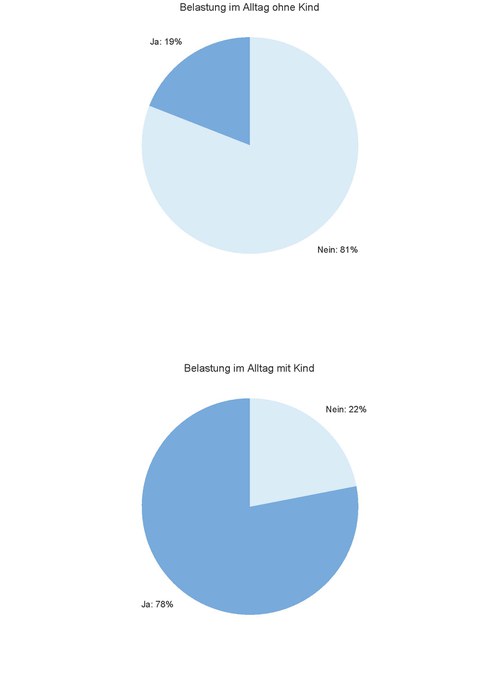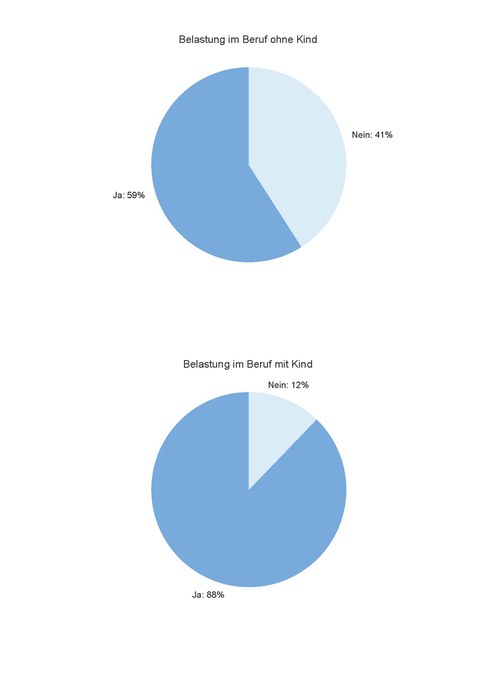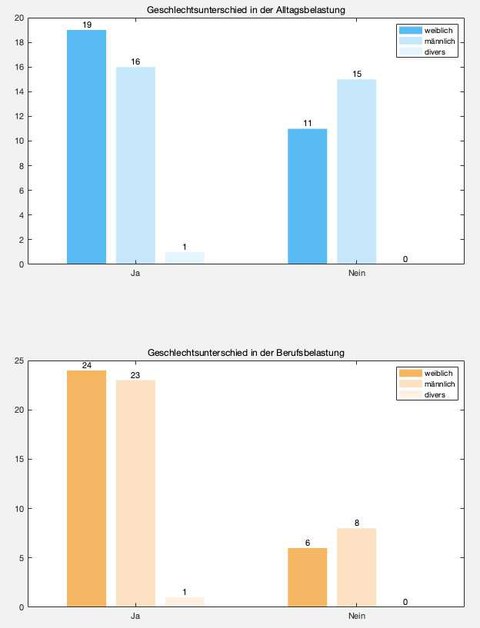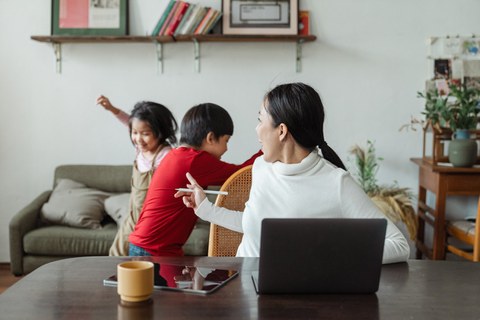Equality despite pandemic
The project "Equality despite the pandemic" is run by Dr Magdalena Wekenborg, funded by the equality work at the Department of Mathematics and Natural Sciences at TU Dresden. In the faculties of mathematics and natural sciences, significantly more mothers than fathers applied for funding from the equal opportunities fund as a result of a Corona-related delay in their academic career. Against this background, the project focuses on an investigation of causes and possibilities to counteract this trend and not to further endanger already achieved gender equality goals from pre-pandemic times.
To this end, three sub-projects will be carried out:
-
Literature review on COVID-19-related changes with regard to gender equality among academics
-
Survey of academic staff in the MN "Corona & Equality" area
-
Workshop "Future Workshop - Shaping Academic Careers in a Family-Friendly Manner
The first part, "Literature Review", includes a detailed systematic literature review on the topic of gender equality in pandemic times. Mostly international studies with participants in the scientific field as well as workers in other fields of work are presented.
In the context of the survey "Corona & Equality" of employees in the field of mathematics and natural sciences at the TU Dresden in June 2021, problems with regard to the compatibility of scientific career and organisation of family life since the beginning of the COVID-19 pandemic became apparent. The evaluation revealed a perceived additional burden in both the private and professional environment since the beginning of the Corona pandemic.
The third part of the project is a workshop for (post-) doctoral students at TU Dresden, in which men and women work together to develop a future vision for the equal reconciliation of family and career in science.
The first part of the project "Equality despite the pandemic" of the Mathematics and Natural Sciences Division comprises an extensive systematic literature review of current research findings in the field of equality during the COVID-19 pandemic. These confirmed the trend that significantly more mothers than fathers applied for funding from the Equality Fund as a result of a Corona-related delay in their scientific careers. In the scientific context, a reduction in working time invested in research was observed. Women scientists with children were particularly affected by this (Deryugina et al., 2021; Myers et al., 2020). In addition, mothers were found to invest more time in childcare compared to fathers (Alon et al., 2020, Fodor et al., 2021). Corona-related differences were also evident in other areas of work.
You can find a more detailed description of the results of the systematic literature review here.
02. sub-project: "Corona & Equality" survey
As part of the project "Equality despite the pandemic", a survey was conducted in June 2021 among employees of the Department of Mathematics and Natural Sciences at TU Dresden. The survey dealt with the experiences of scientific employees with regard to the compatibility of their scientific careers and the organisation of family life since the beginning of the COVID 19 pandemic.
A total of N = 85 respondents took part in the survey. The evaluation revealed a perceived increase in workload in both private and professional life since the beginning of the COVID 19 pandemic. In a series of open response formats, the participants also had the opportunity to name reasons for the stress and wishes for changes in the workplace to improve the situation. The fact whether the participants had children had a significant influence on the perception of professional or private additional burden.

81% of the participants without children answered "no" to the question about the additional workload in everyday life since the beginning of the pandemic, while 22% of the participants with children did not perceive any additional workload.

59% of the participants without children answered the question about the increased workload since the beginning of the pandemic with "yes". Among the participants with a child, 88% felt an additional burden.

A statistical evaluation of the correlations between the gender of the participants and the question of whether they had children or not, as well as the perception of additional private or professional burden since the beginning of the COVID 19 pandemic, showed no interaction effects between the variables gender and children (yes/no). However, the sole fact of whether or not the participants had children had a significant influence on the perception of additional work or private burden.
Here you will find a more detailed presentation of the key findings.
03. Sub-project Workshop "Future Workshop - Shaping Academic Careers in a Family-Friendly Manner
As part of the project "Equality despite the pandemic", a workshop for (post-) doctoral students of the TU Dresden took place on 30.09.21/ 01.10.21 and 29.10.21. The aim was to develop a common vision of the future for equal reconciliation of family and career in science. The focus was on analysing the distribution of tasks in the families of (post-) doctoral students during the Corona pandemic, developing structural and individual visions for the future, and taking the first steps towards concrete implementation.
Course of the workshop
The workshop, which lasted several days, began by collecting the problems so that the participants had the opportunity to concretise their diffuse feelings, discover commonalities and identify problem clusters as well as interdependencies. The second step was to design a utopia to overcome barriers to thinking and to create motivation for working on solutions. The third and last step then finally represented the practical relevance. The participants thought about concrete and realisable first steps towards the realisation of the positive vision of the future. The methods used to find solutions were collegial counselling, the solution table approach and the question fan. The participants were also prepared for dealing with resistance with special exercises.
Central results of the workshop
In the course of the workshop, three major problem clusters were identified:
-
Individual understanding of roles, shaped by individual role models and expectations of oneself in the areas of career, family and leisure time.
-
Unclear success criteria/goals for scientific employees
-
Uncertainties in the postdoc phase (fixed-term contracts).
The participants concretised the problems within the respective clusters and worked out appropriate solutions. Flexible workplaces, home office, fixed-term contracts, transparent work requirements as well as increased counselling and networking services emerged as central approaches to solving the problems.
Follow-up meetings of the workshop
From January 2022, the follow-up of the workshop started in the form of small meetings. The aim of these follow-up meetings was to develop further approaches to solutions and to evaluate the effectiveness of previous approaches in the participants' everyday lives. During these meetings, which lasted about half an hour, the clusters that had been identified and the wishes and solutions that had been recorded during the workshop were first refreshed. Afterwards, the participants had the opportunity to exchange ideas with regard to concrete changes in their own everyday life resulting from the workshop. The last follow-up meeting for the time being took place in March 2022, during which the participants pointed out the central role of this form of exchange for the family-friendly design of career paths in science.
Outlook
In addition to the positive effects of the workshop results for the participants, they are now to be made available to a wider group of people. For example, the concept of the future workshop developed within the framework of the project "Equality despite Pandemic" has already been successfully transferred to other areas of the TU Dresden. In addition, various exchange formats regarding the workshop results are planned in TU Dresden committees concerned with gender equality.
Contact:
Dr. Magdalena Wekenborg
Chair of Biopsychology
and
Else Kröner Fresenius Centre for Digital Health, TU Dresden
Email:




